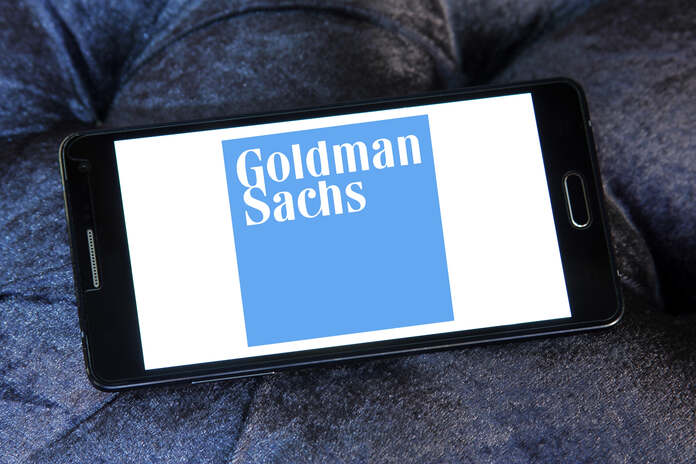In recent months, dividend stocks have garnered increasing attention as investors have shifted away from high-risk growth investments. These stocks not only offer a reliable source of passive income but also boast healthy financial foundations, robust operational capabilities, consistent earnings, and prominent positions in their respective industries. During times of economic uncertainty, such as the current environment, these stocks provide a sense of stability for investors.
In this article, we will spotlight three exceptional stocks from different sectors that offer attractive dividend yields, possess a strong history of operational excellence, and exhibit significant growth potential according to analysts closely monitoring their performance.
Goldman Sachs Group
Established in 1869, the financial services behemoth, Goldman Sachs Group (NYSE:GS), delivers a wide array of services to corporations, financial institutions, governments, and individuals, including investment banking, securities trading, asset management, and wealth management. With a market capitalization of $102.36 billion, Goldman Sachs shares have experienced a 7.5% decline in 2023 thus far.
Goldman Sachs currently boasts a dividend yield of 3.30%. Moreover, the company has consistently paid dividends for 23 years and raised its dividend for 11 consecutive years, surpassing sector medians. Most recently, Goldman Sachs increased its quarterly dividend from $2.50 to $2.75 per share.
While the company’s most recent quarterly results revealed an 8% decrease in revenue to $10.9 billion and a 60% drop in earnings to $3.08 per share, falling slightly short of the consensus estimate of $3.15, it exceeded Wall Street’s revenue expectations. Analysts remain optimistic about GS, with a consensus “Moderate Buy” rating. Among 17 analysts covering the stock, 10 have a “Strong Buy” rating, 1 has a “Moderate Buy” rating, and 6 have a “Hold” rating. Additionally, the mean target price of $391.61 suggests an upside potential of approximately 26.1% from current levels.
PepsiCo
PepsiCo (NASDAQ:PEP), the global beverages giant founded in 1898 in New York, has been quenching consumers’ thirst for over a century. It has evolved into one of the world’s largest food and beverage companies, operating in over 200 countries and territories. PepsiCo’s brand portfolio includes iconic names such as Pepsi, Diet Pepsi, Mountain Dew, Gatorade, Tropicana, Quaker, Frito-Lay, and Doritos. With a market capitalization of approximately $220.39 billion, Pepsi stock has declined by 11.1% year-to-date.
PepsiCo currently offers a dividend yield of 3.02%, surpassing the sector median of 2.78%. Impressively, PepsiCo has consistently increased dividends over the past 50 years, earning it the distinction of a “dividend king.”
In the second quarter, PepsiCo reported solid results with a 10.4% increase in revenue to $22.3 billion and a 12.4% jump in earnings per share (EPS) to $2.09, surpassing the consensus estimate of $1.96. PepsiCo has consistently exceeded Wall Street’s earnings expectations, achieving this feat in each of the past five quarters. Analysts have assigned a consensus rating of “Moderate Buy” to PEP, with a mean target price of $195.54, indicating an upside potential of approximately 23% from current levels. Among 14 analysts covering the stock, 7 have a “Strong Buy” rating, and 7 have a “Hold” rating.
Home Depot
Our list concludes with Home Depot (NYSE:HD), the world’s largest home improvement retailer, in operation since 1978 and headquartered in Atlanta, GA. Home Depot operates over 2,300 stores in the United States, Canada, and Mexico, offering a wide range of products, including building materials, home improvement items, gardening supplies, decor, and maintenance and repair products. With a market capitalization of $291.7 billion, Home Depot stock has experienced a 6.5% decline in 2023.
Home Depot’s dividend yield of 2.80% surpasses the sector median of 2.50%, and the company has increased its dividend for 14 consecutive years.
In the second quarter, Home Depot reported a decrease in both revenue and earnings. Revenues for the quarter totaled $42.9 billion, down 2% from the previous year, while EPS declined by 8% to $4.65. However, EPS still exceeded the Street’s expectations of $4.45. Notably, Home Depot has consistently outperformed earnings expectations in each of the past five quarters.
Analysts maintain a positive outlook on the stock, giving it an average “Moderate Buy” rating with a mean target price of $350.50, indicating an upside potential of approximately 20.6% from current levels. Among 27 analysts covering the stock, 15 have a “Strong Buy” rating, 1 has a “Moderate Buy” rating, and 11 have a “Hold” rating.
Conclusion
Despite facing setbacks in 2023, the companies mentioned in this article remain prominent players in their respective industries. Their proven ability to navigate diverse economic environments over the years, combined with their commitment to delivering consistent dividends and promoting dividend growth, makes them compelling choices for investors.
Featured Image: Megapixl















